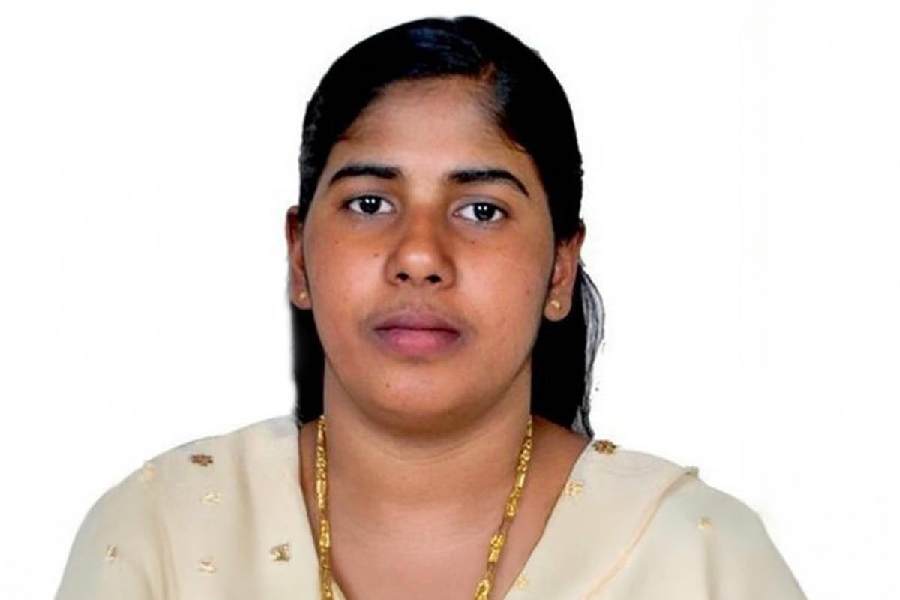Who is Nimisha Priya?
Nimisha Priya is an Indian nurse hailing from Kollengode, Palakkad, in Kerala. Born in 1989, she moved to Yemen in 2008 in search of better financial opportunities. Initially working in a government hospital in Sana’a, she later co-founded the Al Aman Medical Clinic in 2015.
Fluent in Arabic and experienced in medical care, she rose to become a respected community figure among Indian expats and Yemenis alike. However, her life took a dramatic turn after a dispute with her Yemeni business partner, Talal Abdo Mahdi.
What Happened?
In 2015, Nimisha Priya became embroiled in a conflict with Talal, who had helped her set up the clinic but allegedly turned hostile. Reports suggest:
- Talal confiscated her passport, making it impossible for her to return to India.
- He allegedly misused clinic finances, threatened her safety, and physically intimidated her.
- Despite legal attempts, Nimisha reportedly failed to regain her passport via official means.
In a desperate attempt to retrieve her documents, she sedated Talal using medical drugs, including ketamine. Unfortunately, the dose proved lethal, and Talal died. His body was allegedly dismembered and found in a water tank—an act Nimisha and an aide are said to have committed in panic.
She was arrested while attempting to flee Yemen in August 2017 and charged with premeditated murder.
Where Did It Happen?
The entire incident took place in Sana’a, the capital of war-torn Yemen. Nimisha’s clinic was located in this city, and the altercation with Talal occurred at her medical office.
The trial was held in Yemen’s judicial system, which follows a blend of civil and Islamic Sharia law. Legal safeguards, such as translators or consular access, were reportedly absent in the early stages of her detention.
When Did Events Unfold?
- 2008: Nimisha moves to Yemen as a nurse.
- 2015: Al Aman Medical Clinic is opened with Talal’s partnership.
- July 2015: The incident leading to Talal’s death occurs.
- August 2017: Nimisha is arrested near the Saudi border.
- 2018: Yemeni court convicts her of murder and sentences her to death by execution.
- November 2023: Yemen’s Supreme Judicial Council upholds the death sentence.
- July 2025: Execution is postponed amid growing diplomatic and public pressure.
Why Is She on Death Row?
Nimisha was convicted under Yemeni criminal law, which applies capital punishment for intentional homicide. Her defense argued that her actions were not premeditated murder but a desperate act driven by abuse and threats.
The court, however, rejected this view. Due to the absence of a formal apology, and the victim’s family not consenting to pardon, the death sentence was upheld.
Yemen allows clemency if the victim’s family accepts blood money (Diya), as per Islamic law. Nimisha’s family has tried to negotiate this since 2023 but with limited progress.
How Is the Case Being Handled Now?
As of July 16, 2025:
- Nimisha’s execution has been temporarily deferred by the Yemeni judiciary.
- Her family has offered blood money to Talal’s family, which includes financial compensation as a plea for mercy.
- While some family members of Talal are reportedly willing to consider the offer, his brother remains opposed.
- Multiple Indian agencies—including the Ministry of External Affairs, Kerala Chief Minister, and human rights organizations—are pressuring for diplomatic resolution.
- Her daughter and husband have publicly appealed for intervention, and an Indian Supreme Court petition was filed seeking urgent governmental action.
Current Legal Status
| Status | Details |
|---|---|
| Crime | Murder (via over-sedation and alleged body disposal) |
| Location | Sana’a, Yemen |
| Conviction | 2018, Death Sentence |
| Latest Court Decision | Sentence upheld in 2023 |
| Current Status | Execution deferred, blood money negotiations ongoing |
Public Reactions & Campaigns
- The “Save Nimisha Priya” campaign has gained traction online, with citizens, activists, and MPs urging the Indian government to intervene diplomatically.
- Religious leaders and social influencers in Kerala have offered to mediate.
- Human rights advocates argue Nimisha’s case is an example of how migrant workers—especially women—are often left legally unprotected in conflict zones.
What’s Next?
- Execution window is still open, pending final word from the victim’s family.
- The Indian government is exploring legal, diplomatic, and humanitarian channels to delay or commute her sentence.
- If blood money is accepted and pardon granted, Nimisha may be repatriated to India—possibly to serve a reduced sentence.
- If negotiations fail, execution could be rescheduled by Yemeni authorities.
Conclusion
Nimisha Priya’s story is a tragic intersection of migrant vulnerability, gendered violence, flawed legal aid, and international diplomacy. As of now, her life hinges on negotiations between families—and governments—across borders. The world watches, as Kerala waits with bated breath.


